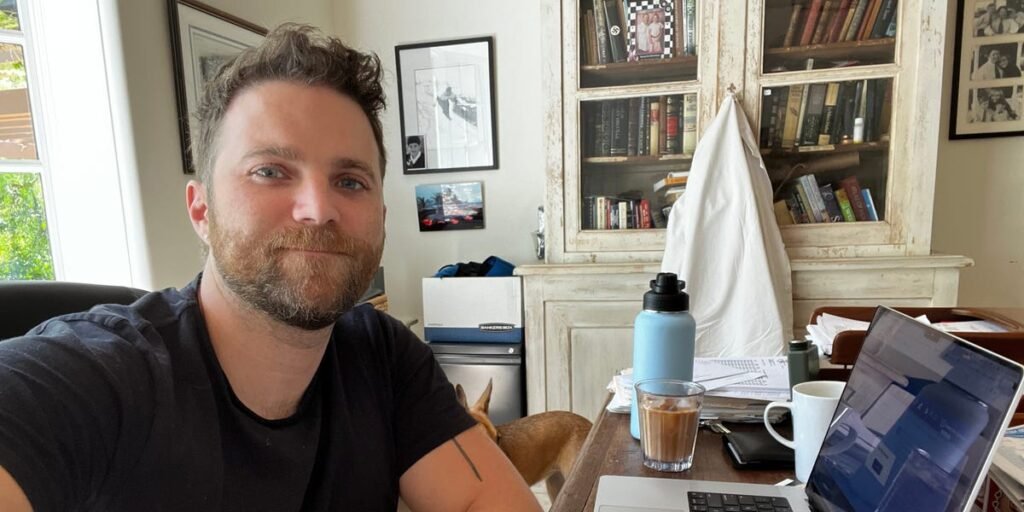This is an as-told-to essay based on a conversation with Edward Wardrip, who worked as a documentary editor for over a decade. He’s planning to attend UCLA Law School to become a labor attorney. It’s been edited for length and clarity.
I graduated from college in 2012, which was shortly after the financial crash, but when things were starting to pick up again.
I loved working in documentary. I mostly worked on PBS-style historical documentaries. That’s always been my favorite. It always felt like I was in school, still learning.
My first two mentors were both incredibly talented editors who lived solid, middle-class lives in New York. I was inspired by that.
I think the industry has changed. It was more plausible to have a middle-class life 10 years ago than it is now. But despite documentary and reality TV production increasing over the years, many workers feel like they haven’t reaped the benefits.
I spent the last couple of years fighting to unionize our section of the industry, which has been left behind by other film and TV unions.
Now, at 34 years old, I’m going to law school to learn how to fight for workers like myself.
Movie and TV unions are strong — but documentaries and reality TV are left out
The movie and TV industry is known for its strong unions. But it’s less common for documentary and reality TV projects to have a unionized crew.
People who work on documentaries are seldom given the same protections as those in other parts of the industry. We work long hours and don’t always get overtime pay or healthcare, which is getting more expensive.
It’s upsetting to open a streaming app, see your documentary or a friend’s documentary on the homepage, and know that none of the people who worked on it got healthcare.
The industry unions haven’t always adapted to the gig economy nature of documentary work. Even as documentary filmmaking and reality TV production have expanded dramatically, we rarely have a seat at the bargaining table with traditional unions.
A group of us in the Alliance of Documentary Editors formed an organizing committee. We found the traditional model of flipping one show at a time didn’t work for us. Documentaries are not multiple seasons. By the time you spend months organizing and negotiating a union contract for a documentary crew, it’s over. You’re on to the next thing.
We found out about the non-majority union model, which we thought made more sense for the fast-paced film and TV industry of this era. The organizing campaign is still ongoing. Many documentary filmmakers work on both big projects and small, independent projects. And we wanted to find a way to ensure everyone could have healthcare all the time, not just on the giant studio productions.
It was time for a change
I’ve worked only one union job, for 17 months in 2015 and 2016: “Spielberg,” an HBO documentary about Steven Spielberg. The healthcare was incredible. If there was an issue, you called the union and it was fixed. The claims above say that there is no healthcare for people in documentary films
That was the last documentary union job I’ve seen listed anywhere. I haven’t heard of anyone I know working another one since.
By 2024, my documentary film work was getting really, really scarce. I mean, it was very dead for a lot of people. I had to completely eat through my retirement savings just to stay afloat.
That’s the reality of freelance life. No one’s putting anything into a retirement check for me. I was doing it all myself.
At 34, I looked around and thought, “This doesn’t feel worth it to me anymore.” I felt like I was on a dead-end road and I was never going to be able to retire. And I was still young enough that I could do something else.
But organizing a union energized me. I was passionate about labor law.
I just started studying at night and on the weekends for the LSAT. I did an online class with a bunch of 22-year-olds.
I got a 174 on the LSAT, which is the 98th percentile. UCLA gave me the best offer. And since I already live in Los Angeles, I could keep my apartment and stay relatively close to my relatives in California.
There’s a whole class of people in our economy who are doing what we have not typically considered union work.
I want to work and fight for Amazon workers, Whole Foods employees, Uber drivers, YouTube content moderators — you name it.
Our jobs have really changed, and the gig economy has changed, and there’s this huge group of people who deserve healthcare and who are not getting it. I want to fight for them.
Read the full article here



